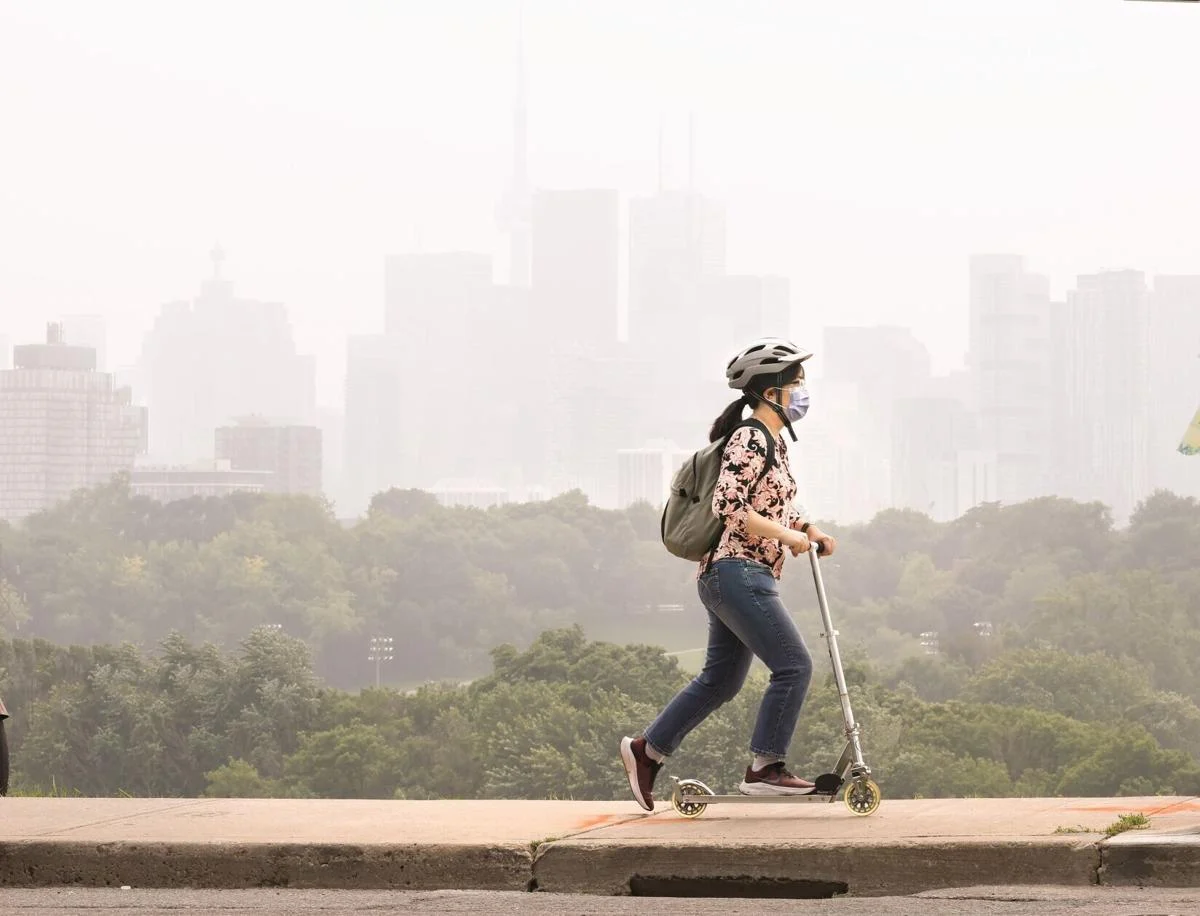Southern Ontario residents woke up Monday to some of the worst air quality in the world, as wildfire smoke from northern Ontario and the Prairies blanketed the region, triggering widespread air quality alerts.
Several cities — including Toronto, Burlington, and Newmarket — recorded Air Quality Health Index (AQHI) readings of 10 or higher, which Environment Canada classifies as a “very high risk” to health. The smoke, caused by wildfires burning across central and western Canada, also forced event postponements, including a CFL game last Friday.
“Toronto’s AQHI hit 10+ early Monday,” officials reported, putting it among the highest readings in North America and globally.
How Bad Is It?
According to Health Canada, air pollution from human activity contributes to an estimated 15,300 premature deaths in the country each year. Wildfire smoke is particularly dangerous because it contains fine particulate matter, or PM 2.5—tiny particles 2.5 microns or smaller that can reach deep into the lungs and even enter the bloodstream.
Children and Vulnerable Populations at Greater Risk
Dr. Kevan Mehta, a pediatric respirologist at McMaster Children’s Hospital, explained that children and individuals with respiratory conditions like asthma are especially vulnerable. “Children exchange air more frequently than adults, and PM 2.5 can bypass the lungs and enter the bloodstream,” he said.
Older adults, pregnant women, and those with heart or lung conditions are also considered at higher risk.
Should You Stay Indoors?
If possible, yes—especially for those with underlying health concerns. Staying indoors with windows closed and air filtration running can help minimize exposure. Even indoor air can benefit from additional purification, and some libraries, such as those at McMaster and Waterloo, offer air purifiers and monitors for public borrowing.
Still, Mehta encourages a balanced approach. “There’s no magic AQHI number when you must stay indoors,” he said. “But those with breathing issues should definitely consider postponing or modifying outdoor plans.”
He recommends lighter outdoor activity—like walking instead of running—and advises against strenuous exercise when air quality is poor.
Should You Wear an N95 Mask?
If you must be outside, and especially if you have respiratory issues, an N95 mask can help. It filters out the harmful PM 2.5 particles better than lower-grade masks, which only block larger irritants.
However, Mehta cautions against prolonged use of N95s in hot, humid weather. “They can make it more difficult to breathe, especially for vulnerable individuals,” he said.
What’s Next?
Environment Canada expects conditions to improve gradually through Monday, though some areas may continue to see poor air quality into Tuesday.
For now, officials urge residents to stay alert, limit exposure, and take precautions seriously. As wildfires continue to burn across Canada, air quality may remain a concern through the summer.
Ask ChatGPT

